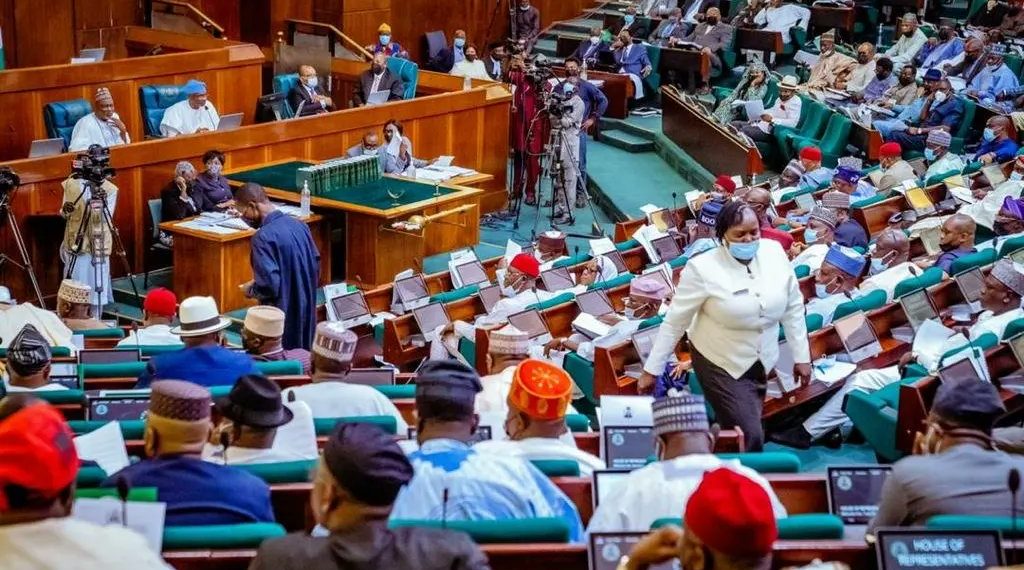The minority caucuses in the House of Representatives have commenced the process of alliance to present a unified front ahead of the inauguration of the 10th session of the House in June.
The lawmakers met on Tuesday at the Transcorp Hilton in Abuja. Lawmakers from six minorities parties were in attendance.
Several new and returning lawmakers, attended the meeting which started at about 10 p.m.
The parties are the Peoples Democratic Party (PDP), Labour Party (LP), All Progressives Grand Alliance (APGA), Social Democratic Party (SDP) Youth Progressive Party (YPP), and New Nigerian People’s Party (NNPP).
The moderator of the meeting, Dachung Bagos (PDP, Plateau), informed the lawmakers that the combined strength of the opposition is more than the ruling party. He noted that there is a need for unity to achieve a collective interest.
He noted that the alliance can produce “an impossible upset” if all the lawmakers are committed to the alliance.
Composition of the House
The ruling All Progressives Congress has so far won 162 seats out of the 325 seats declared by the Independent National Electoral Commission (INEC).
Meanwhile, the combined strength of the opposition is 163 seats with the PDP having 102 seats. LP and NNPP have 34 and 18 seats respectively, APGA four seats, ADC and SDP two each while YPP has one seat.
Alliance must be of equity
Speaking on the alliance, George Ozodinobi, a lawmaker-elect from Anambra State, said the LP is committed to an alliance as long as the process aligns with its values.
Mr Ozodinobi, who spoke on behalf of the LP caucus, said they will back anyone the group decides as long as the person is competent.
“We are a minority caucus and we are pledging commitment to the unity of the great alliance of the 10th Assembly. I believe we are all minorities and believe we are all standing together for the common purpose of the overall benefit for us, irrespective of seniority considering the ratio of the alliance.
“I stand here on behalf of the 34 strong elected members of the LP, believing this alliance shall attract evenly benefit to us in this assembly and conform with the LP ideology,” he said.
Also speaking on the alliance, Abdulmummin Jibrin, a member-elect on the platform of NNPP from Kano State, assured his colleagues that they can achieve their aim, as long as they are united.
Mr Jibrin, a former member of the House, said the alliance will protect the collective interest of the group.
Following the remarks by some of the lawmakers, the meeting was declared “closed door”.
Historical perspectives
Since 1999, the parties with majority members in both the Senate and the House have always produced the presiding officers of the two chambers.
The PDP produced the presiding officers from 1999 until 2015 when it lost power to the APC which had majority in the two chambers that year.
Since then the APC has been producing the presiding officers because of its numerical strength in both chambers.
The only exception was in 2015 when Ike Ekweremadu of the PDP was elected deputy senate president following some working relationship with some APC senators. Mr Ekweremadu was deputy to Bukola Saraki then of the APC.
In the Second Republic, the ruling National Party of Nigeria (NPN) went into alliance with the Nigeria Peoples Party (NPP) to produce the presiding officers of the Senate and the House because of its narrow majority in both chambers.
Consequently, the NPN produced Joseph Wayas as senate president while NPP had John Wash Pam as deputy senate president.
In the House, Edwin Ume-Ezeoke of the NPP became the speaker while Ibrahim Idris of NPN was his deputy.
It is not clear if such alliance will be replicated in the 10th National Assembly if the APC does not have a clear majority in the House after the 15 April supplementary elections.


